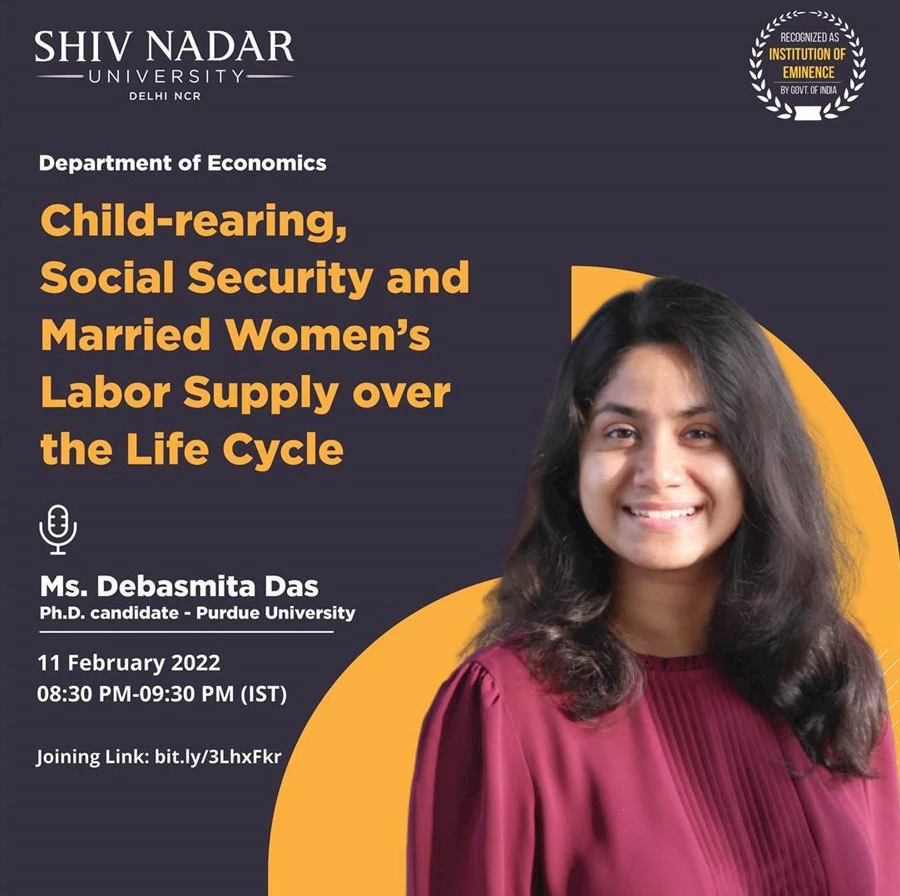Department of Economics organizing a talk series on ‘Child-rearing, Social Security and Married Women’s Labor Supply over the Life Cycle’
The Department of Economics invites you to a talk titled ‘Child-rearing, Social Security and Married Women’s Labor Supply over the Life Cycle’ by Ms. Debasmita Das, Ph.D. Candidate at Purdue University, on 11 February 2022 (Friday) from 08:30 PM to 09:30 PM (IST).
Abstract of the talk
The talk will focus on the work by Ms. Das about how career interruptions during child-rearing years affect the labor market trajectory, lifetime earnings, and Social Security benefits of married women in the United States. To this end, Ms. Das has developed a dynamic structural life-cycle model of female labor supply, savings, and Social Security benefit claiming and estimate the model using the Method of Simulated Moments for the 1943-1954 cohort. Ms. Das used the estimated model to quantify the effect of three revenue-neutral counterfactual policy reforms: (i) introducing a Social Security caregiver credit that covers the lost earnings during the first 5 child-rearing years through changes in retirement benefits, (ii) combining the introduction of caregiver credit with the elimination of spousal and survivors benefits, and (iii) removing spousal and survivors benefits. The researcher found that the gender gap in average career earnings at the Social Security Early Retirement Age reduces significantly under all three counterfactual scenarios, with the largest effect of 12.77% decline under the second reform. The findings suggest that instituting caregiver credit for child-rearing in the absence of the marriage-based Social Security benefits would offset a substantial portion of the motherhood penalty in lifetime labor earnings of married women and increase their retirement benefit adequacy.

Share this: